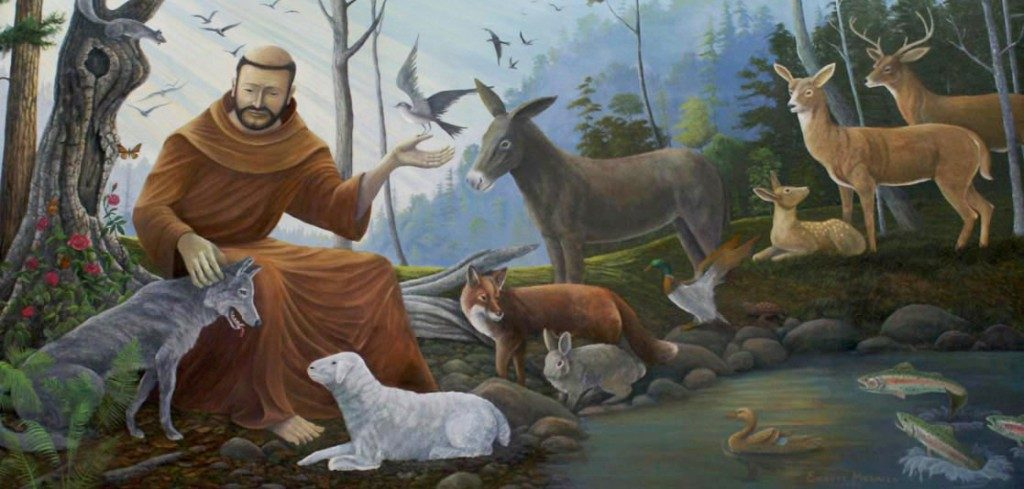SHOULD CHRISTIANS LOVE ANIMALS?
SHOULD
CHRISTIANS LOVE ANIMALS?
Someone might say, “I love them on
my plate.” But not all animals. We tend to be very discerning in the kind of meat
we want to be served, conditioned more by the culture in which we were raised
than anything else. Not many, if any,
restaurants in North America serve dog or cat meat, but you can find such
offerings in some Asian countries. So, when
I wonder whether or not we should love animals, I don’t mean as food, but as living
creatures. Christians have a moral
obligation to love one another. But are
we morally obligated to love animals?
In answering the question, we ought
to consider how the Bible celebrates God’s creation. “You fixed the earth on its foundation, never
to be moved. The ocean covered it like a
garment; above the mountains stood the waters…You made springs flow…they give
drink to every beast of the field; here wild asses quench their thirst. Besides them the birds of heaven nest; among
the branches they sing…You raise the grass for the cattle and plants for our
beasts of burden…The high mountains are for wild goats; the rocky cliffs, a
refuge for badgers…You bring darkness and night falls, then all the beasts of
the forest roam abroad. Young lions roar
for their prey; they seek their food from God” (Psalm 104). Creation reflects the greatness of God, who
cares for all that he has created. “For
you love all things that are and loathe nothing that you have made” (Wisdom
11:24). We should love the animals
because they are given to us by God for our good. He said to Adam and Eve, “Be fertile and
multiply; fill the earth and subdue it.
Have dominion over the fish of the sea, the birds of the air, and all
the living things that move on the earth” (Genesis 2:28). Every gift of God should be received with
thanksgiving, including the animals.
Animals are living and
sensate. Therefore, they should not be
cruelly treated. They get hungry, and
thirsty, and can feel pain. A person who
cruelly treats one of God’s creatures reveals a significant flaw in his or her
character. At the same time, the Church
teaches that “God entrusted animals to the stewardship of those he created in
his own image. Hence it is legitimate to
use animals for food and clothing. They
may be domesticated to help man in his work and leisure. Medical and scientific experimentation on
animals is a morally acceptable practice if it remains within reasonable limits
and contributes to caring for or saving human lives” (Catechism
#2417). Animals may not be tortured or
treated cruelly. “It is contrary to
human dignity to cause animals to suffer or die needlessly. It is likewise unworthy to spend money on
them that should as a priority go to the relief of human misery. One can love animals; one should not direct
to them the affection due only to persons” (#2418).
Pets cannot replace children. Some couples selfishly choose not to have
children but adopt animals, which are much less demanding to care for and do
not yell back at you. (They also will
not be able to care for you when you are elderly and sick.) It is wrong for a married couple to use
animals to replace children, for one of the two intrinsic purposes of marriage
is the bearing of children (the other is the union of husband and wife). Unless there is a physical impediment, a
couple which is of the childbearing age cannot validly establish a marriage if
they have the intent to never be open to having children together.
I had a dog for six years and cried
terribly when I had to put her down. I
loved her, but not like I loved my family and friends, or even my
parishioners. The Church respects the
animal kingdom, for they are God’s creatures and “By their mere existence they
bless him and give him glory” (#2414).
This is why the Church has provided in the Book of Blessings the option
to bless animals, especially on or around the feast of St. Francis of
Assisi. But animals do not approach the
dignity of a human being who is created in the image and likeness of God and
has an eternal soul. The animals were
created for man, not man for the animals, but like all of God’s creation, they
must be treated with justice and accordance with God’s plan for creation.




Comments
Post a Comment